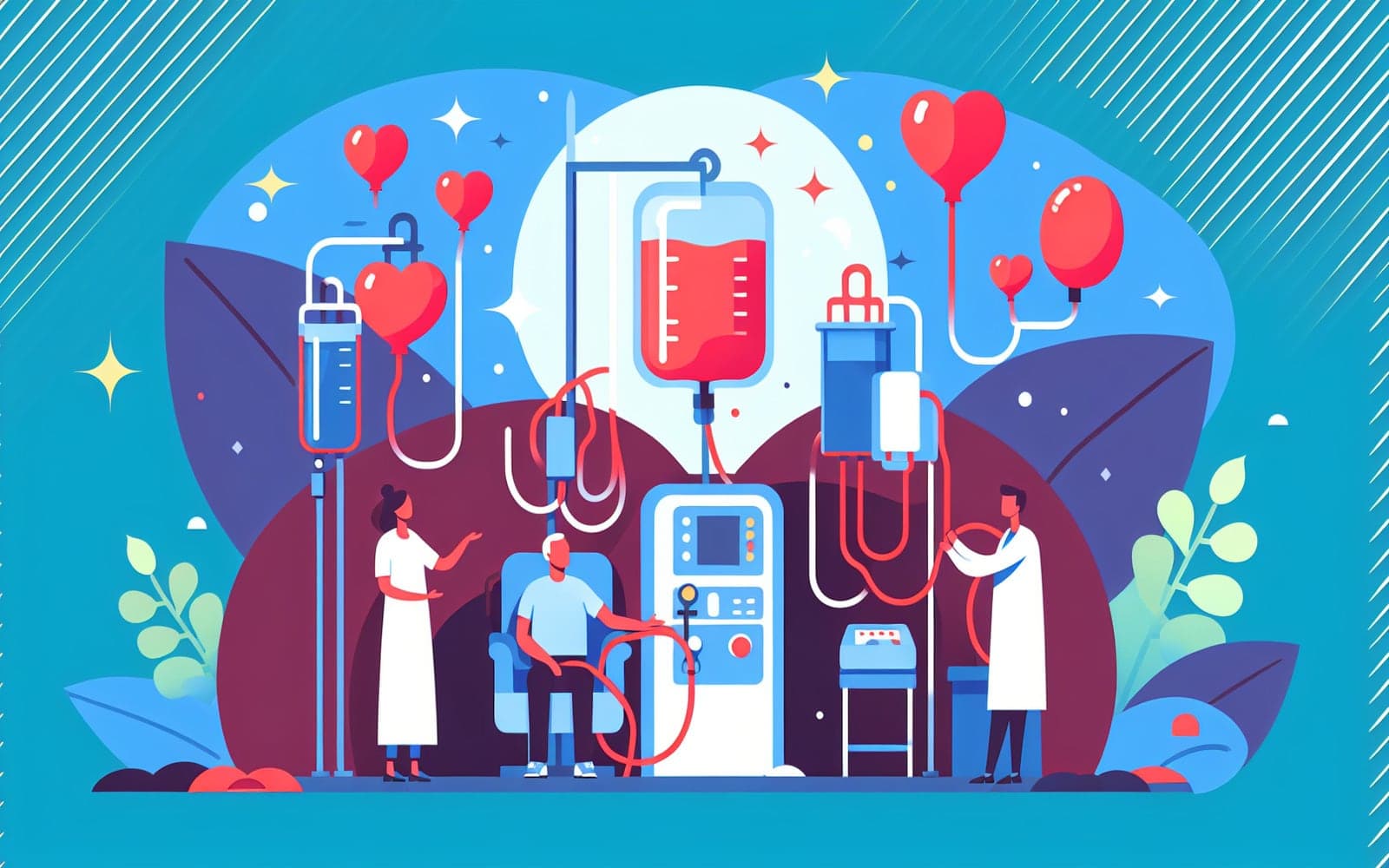Dialysis: A Lifeline for Kidney Failure Patients
Dialysis: A Lifeline for Kidney Failure Patients
Understanding Dialysis
Dialysis is a life-saving treatment for people with kidney failure. It's a complex process, but understanding the basics can help patients feel more in control of their health.
Contents
- What is Dialysis?
- Who Needs Dialysis?
- Life on Dialysis
- Preparing for Dialysis
What is Dialysis?
Dialysis is a medical treatment that filters waste, excess water, and toxins from your blood when your kidneys can no longer do this job. It's like having an artificial kidney. There are two main types of dialysis: hemodialysis, which uses a machine to filter your blood, and peritoneal dialysis, which uses the lining of your abdomen to filter your blood.
Who Needs Dialysis?
Dialysis is typically needed when kidney function drops to 10-15% of normal capacity. This is known as end-stage kidney disease or kidney failure. Common causes include diabetes, high blood pressure, and certain genetic conditions. Your doctor will use blood tests to determine when dialysis is necessary.

Life on Dialysis
Dialysis requires significant lifestyle adjustments. Hemodialysis usually involves three sessions per week, each lasting about four hours. Peritoneal dialysis is done daily, often at home. Both types require careful attention to diet, fluid intake, and medication schedules. Despite these challenges, many people on dialysis lead active, fulfilling lives.
Preparing for Dialysis
If you're approaching the need for dialysis, your healthcare team will help you prepare. This may include creating a vascular access site for hemodialysis or inserting a catheter for peritoneal dialysis. You'll also receive education on diet, lifestyle changes, and how to manage your treatment.
FAQs
Is dialysis painful?
Most patients report minimal discomfort during treatment.
Can I travel while on dialysis?
Yes, with proper planning and coordination with your care team.
How long can someone live on dialysis?
Many patients live for decades with proper care and treatment adherence.
Can I stop dialysis once I start?
Stopping dialysis is a serious decision that should be discussed with your doctor.
Is kidney transplant an alternative to dialysis?
Yes, for some patients, kidney transplant can eliminate the need for dialysis.
Hope on the Horizon
While dialysis is a significant life change, it offers hope and improved quality of life for many with kidney failure.
Additional References
- Hemodialysis Adequacy 2006 Work Group. Clinical practice guidelines for hemodialysis adequacy, update 2006. Am J Kidney Dis 2006; 48 Suppl 1:S2.
- National Kidney Foundation. KDOQI Clinical Practice Guideline for Hemodialysis Adequacy: 2015 update. Am J Kidney Dis 2015; 66:884.
This article has been reviewed for accuracy by one of the licensed medical doctors working for Doctronic.











